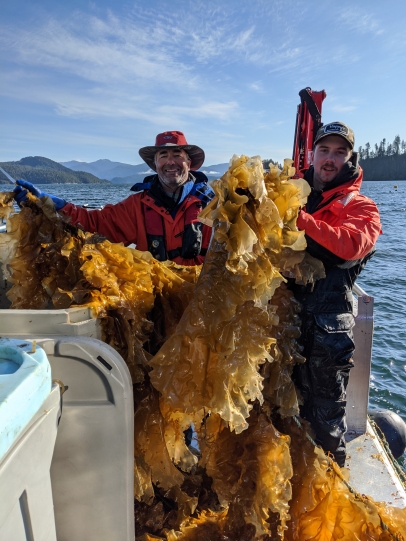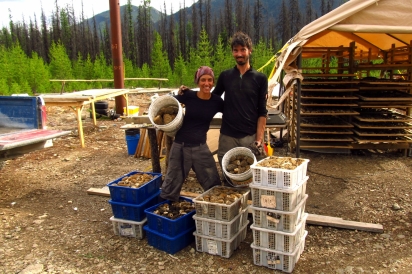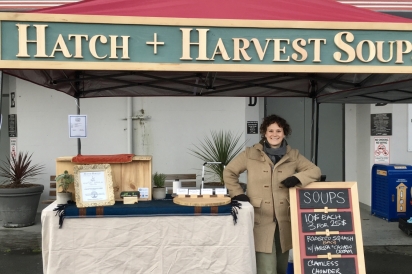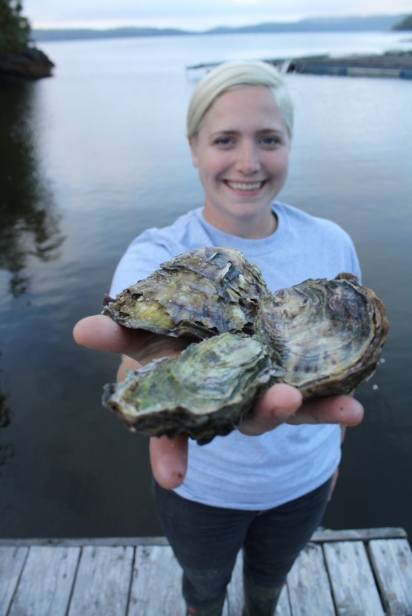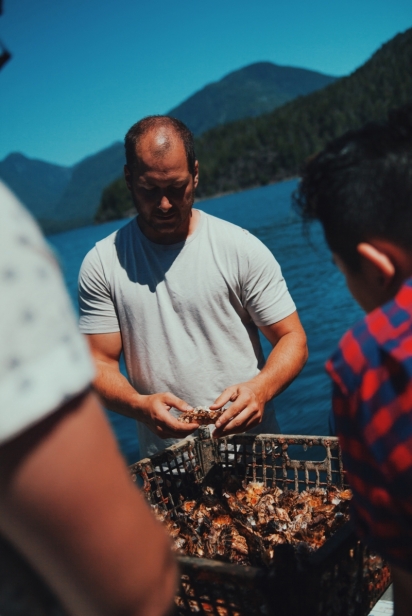Build It and They Will Come
Sometimes it takes a crisis to show you what you’ve got. And in Port Alberni, they’ve got a lot to show. Below the towering cliffs of Mount Arrowsmith, running through the Somass River and flowing out through the cool Alberni Inlet into Barkley Sound are enough terrestrial and marine food sources to fill grocery stores and restaurants many times over. Or, in this case, a food hub.
When the Port Alberni Port Authority (PAPA) joined forces with British Columbia’s Ministry of Agriculture and the Island Coastal Economic Trust (ICET) to revitalize a 17,000 square foot dormant fish processing plant, in a time before COVID-19, they might not have known the extent of possibilities lurking at their feet.
“We don’t have enough notebooks to keep track of interest,” says Knezevic Zoran, PAPA’s CEO and president, speaking about the number of small-scale food processors wanting to sign up for the newly opened micro-food processing facility, soon to be officially renamed The Dock+. “It’s like an iceberg. Every day we’re discovering more potential."
This potential is coming in the form of seaweed, Chanterelles, morels, King Boletes, sockeye, rainbow trout, chinook, sturgeon, nettle, raspberries, fiddleheads, spruce tips, Effingham oysters...and the list goes on. It’s all being either hauled directly from the waters (mere steps from the hub’s back doors) or carried in from the hectares of forestland stretching throughout the valley as far as the eye can see.
Community and collaboration
“Being a part of this community will be incredible,” says 36-year-old Amber Putsey, a former postpartum doula-turned-chef relocating her Vancouver-based gourmet soup company, Hatch to Harvest, to the town where she grew up. “I’m looking forward to bringing my skills and experience together with new people as we grow alongside each other. I wouldn’t want to be doing this on my own, in my little corner.”
One of the beauties of The Dock+, which is part of a B.C.-wide network of food hubs, is its collaborative nature. Five anchor tenants, including Canadian Seafood Processing (Effingham Oysters), Cascadia Seaweed, Flurer Smokery, Forest for Dinner and Nova Harvest Ltd. have already secured their spaces. And while they each work in very different food areas, the opportunities for joining culinary and business forces are huge.
“We have the possibility of sharing marketing and retail strategies, even labour, with the others,” says 39-year-old Ben Patarin, part of the French husband/wife duo who started Forest for Dinner. “I’m on a big learning curve here—the labels, recipes, business plans—it’s all so new, but we don’t want to go too quickly.”
An inspiring model
The food hub is a model the Province’s Minister of Agriculture Lana Popham feels strongly about. A former farmer and food entrepreneur herself, she understands the value and satisfaction of entering the industry as a small-scale producer. “One of the happiest days I ever had as a farmer was the day I opened my roadside stand and sold a dollar worth of basil,” says Minister Popham. “There is an energy around food entrepreneurs that gets me excited. This model not only creates jobs for people, but it also allows them the lifestyle they want to have.”
Lifestyle changes of varying degrees have been non-negotiable since the pandemic. As restrictions on global trade and travel have impacted on our lives, so too have concerns over food security, safety and accessibility. For a province that, decades ago, produced 80% of the food it consumed, the mere 5% it produced before COVID-19 has forced a rethink on how B.C. can have a stronger rate of domestic production and consumption.
“People are worried about their food,” says 33-year-old Liam Collins, head of programs at Cascadia Seaweed, who admits that from a business perspective, COVID-19 put wind in their sails. “People are questioning where the food system could continue to function and are looking for a better solution.”
Reconsidering our food sector
“We need to start at the foundations of our food systems,” says Minister Popham. “Figure out who’s leaving agriculture, the reasons behind that, take away barriers that people see to becoming farmers and the barriers to food processing and putting in incentives.”
One of the ways to help motivate small-scale producers and hobby farmers to expand their businesses is through funding support. In the case of the food hub, this has allowed PAPA to secure the funds needed to transform their idea into reality.
“From the start, we saw the potential for this project to serve as a training hub for smart growth and integrated business development in the region,” says ICET CEO Line Robert. “Now we see the Dock+ as more than a springboard. It can actually become an integral part of a larger, more resilient ecosystem—one where local food producers and consumers work in mutually beneficial, sustainable ways.


